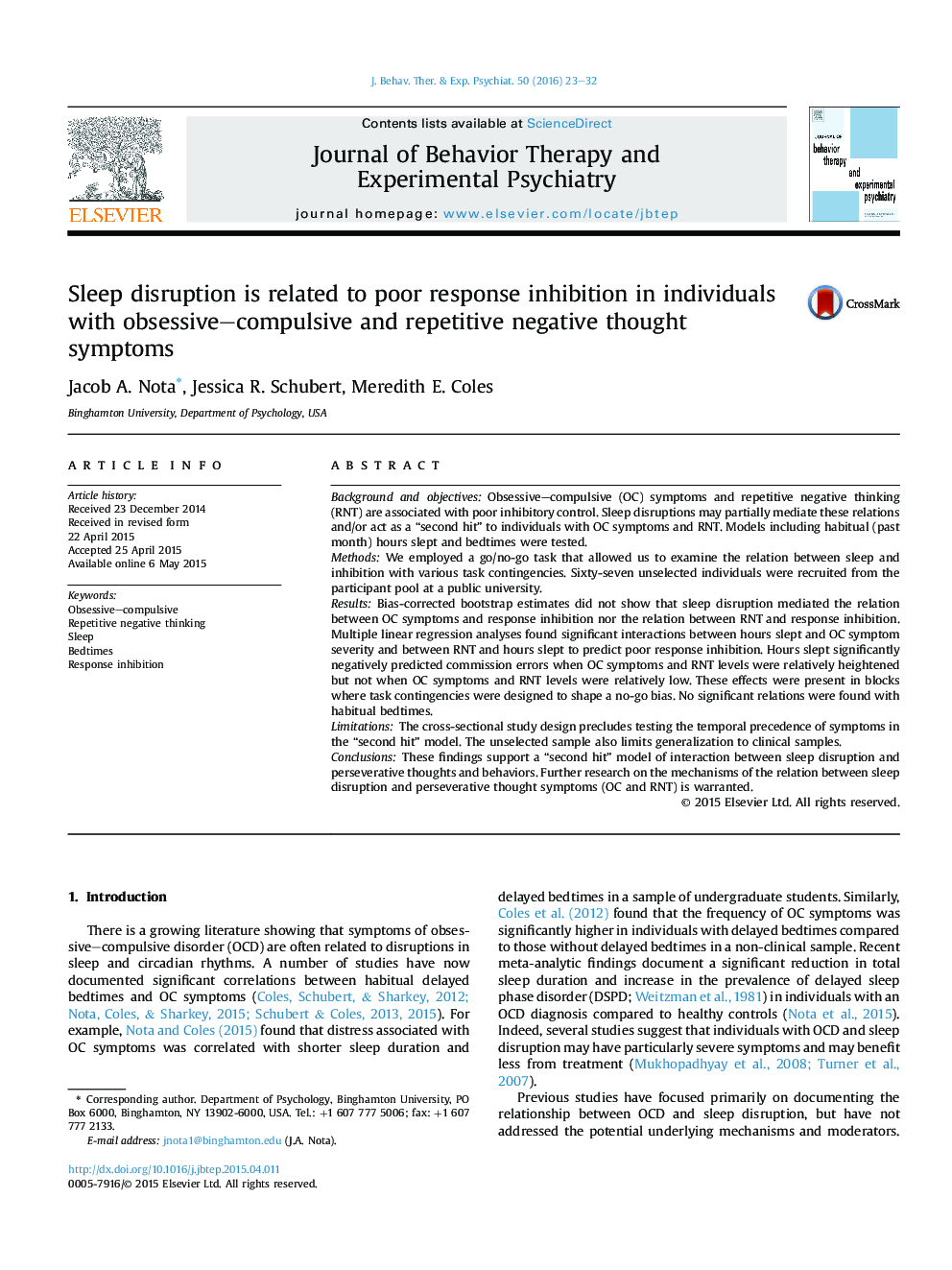| کد مقاله | کد نشریه | سال انتشار | مقاله انگلیسی | نسخه تمام متن |
|---|---|---|---|---|
| 910279 | 1473066 | 2016 | 10 صفحه PDF | دانلود رایگان |
• Hours of sleep predicted commission errors when OC symptoms relatively heightened.
• Hours of sleep predicted commission errors when RNT relatively heightened.
• Bedtime not related to commission errors or symptoms, contrary to expectations.
• Relations between symptoms and sleep found when task feedback encouraged inhibition.
Background and objectivesObsessive–compulsive (OC) symptoms and repetitive negative thinking (RNT) are associated with poor inhibitory control. Sleep disruptions may partially mediate these relations and/or act as a “second hit” to individuals with OC symptoms and RNT. Models including habitual (past month) hours slept and bedtimes were tested.MethodsWe employed a go/no-go task that allowed us to examine the relation between sleep and inhibition with various task contingencies. Sixty-seven unselected individuals were recruited from the participant pool at a public university.ResultsBias-corrected bootstrap estimates did not show that sleep disruption mediated the relation between OC symptoms and response inhibition nor the relation between RNT and response inhibition. Multiple linear regression analyses found significant interactions between hours slept and OC symptom severity and between RNT and hours slept to predict poor response inhibition. Hours slept significantly negatively predicted commission errors when OC symptoms and RNT levels were relatively heightened but not when OC symptoms and RNT levels were relatively low. These effects were present in blocks where task contingencies were designed to shape a no-go bias. No significant relations were found with habitual bedtimes.LimitationsThe cross-sectional study design precludes testing the temporal precedence of symptoms in the “second hit” model. The unselected sample also limits generalization to clinical samples.ConclusionsThese findings support a “second hit” model of interaction between sleep disruption and perseverative thoughts and behaviors. Further research on the mechanisms of the relation between sleep disruption and perseverative thought symptoms (OC and RNT) is warranted.
Journal: Journal of Behavior Therapy and Experimental Psychiatry - Volume 50, March 2016, Pages 23–32
